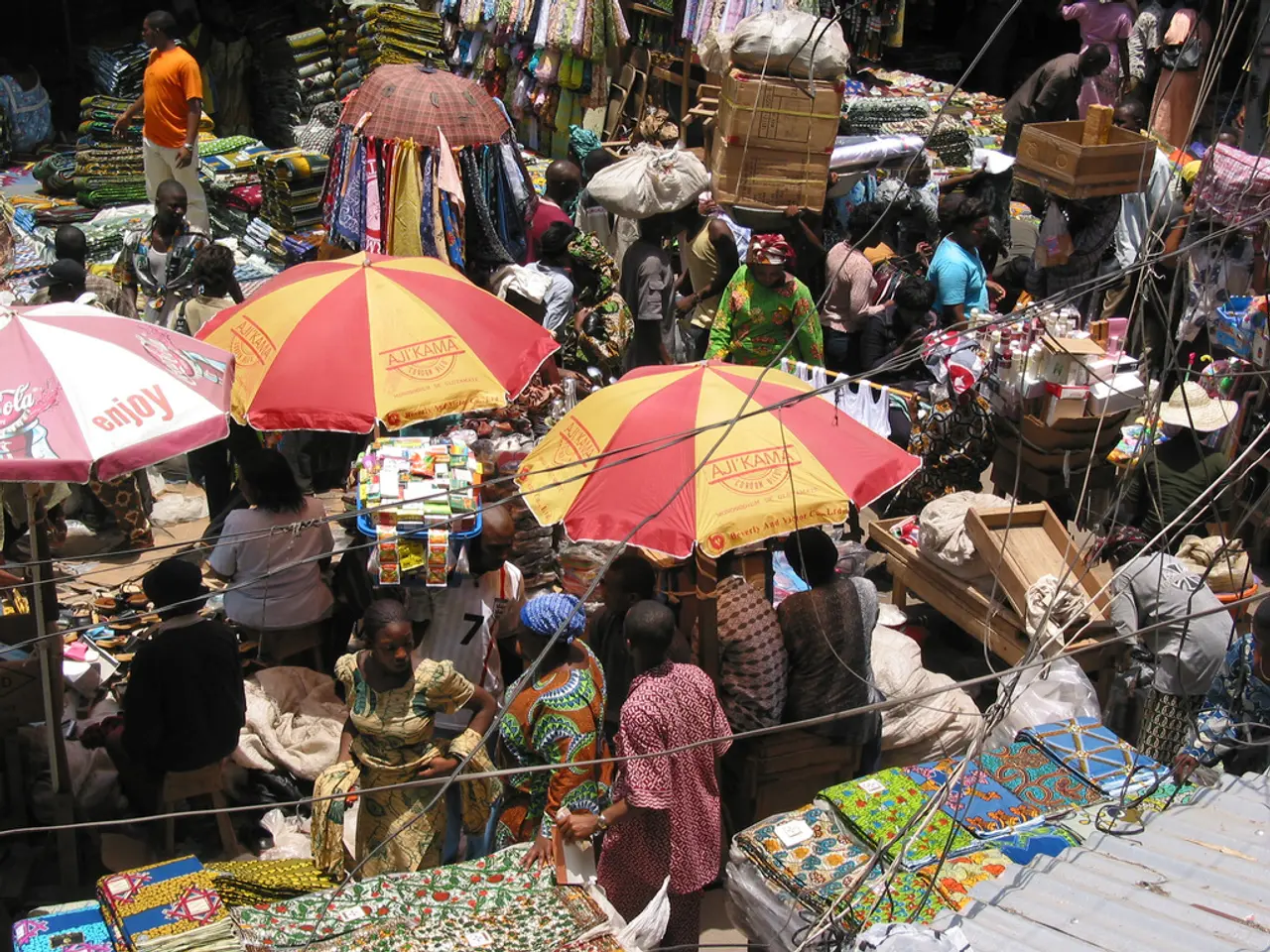Cunning Swindlers Employ Imaginative Craft - Top 9 Tourist Pitfalls and Principal Destinations
In the vibrant and bustling cities of Paris, Rome, Barcelona, Madrid, New Delhi, London, Istanbul, Cairo, and Buenos Aires, tourists can encounter a variety of scams designed to target the unwary. These scams, often involving pickpocketing, distraction techniques, and confidence tricks, are adapted to each city's tourist hotspots. However, awareness and precaution can effectively reduce the risk of falling victim.
Pickpocketing and Distraction Scams
Pickpockets frequently operate in crowded tourist areas such as public transport, famous landmarks, and busy squares. They may create distractions, like pretending to need help with directions or asking to take a photo, or use "crowding" to get close and steal wallets, phones, or passports. Methods include slipping hands into pockets, cutting bag straps ("bag slashing"), or snatching items as victims are distracted or doors close on buses and trains.
Cities particularly prone to these scams include European cities like Rome, Paris, Barcelona, Madrid, and London, as well as Istanbul and Cairo's busy markets or transport hubs.
City-Specific Notable Scams
- Paris: "Crush-and-grab" on crowded metros and tourist areas, with pickpockets working in groups to overwhelm victims. Also watch for street scams involving fake petitions or “charity” collectors.
- Rome: Large crowds at landmarks such as the Vatican allow pickpockets to blend in easily.
- Barcelona/Madrid: Crowded tourist squares and public transport are key spots for theft.
- New Delhi: Scams often involve overcharging by rickshaw drivers or fake guides, as well as distractions by street vendors or children to steal valuables.
- London: Beware of “ring scams” where scammers pretend to find a ring and ask for help, then distract you to steal your belongings.
- Istanbul/Cairo: Common scams include offering unsolicited help, fake vendors, or “friendly” strangers who then pressure tourists; crowded bazaars are hotspots for pickpockets.
- Buenos Aires: Pickpocketing in crowded markets and tourist areas; also beware of nightlife scams and unofficial taxis overcharging.
Common Scam Techniques
- Ring Scam: Asking for help with a supposedly “lost” ring to distract you and steal your wallet or phone.
- Rose Scam: Someone offers a flower (common in Barcelona or Mediterranean cities) and then demands money.
- Fake petition or charity scams: People ask you to sign or donate while distracting you.
- Overcharging and unofficial services: Taxis, tour guides, or vendors charging inflated prices or switching bills.
How to Avoid These Scams
- Stay alert in crowds: Keep valuables secured, ideally in inside pockets or money belts.
- Use bags that close securely: Prefer zipped or anti-theft bags; don't carry wallets in back pockets.
- Be skeptical of unsolicited help: Don't hand over your phone or wallet to strangers asking to take photos or help.
- Keep copies of important documents separately: Have photocopies of passports/IDs and keep originals secure.
- Use official transportation and guides: Only take licensed taxis or verified tour operators.
- Don’t engage with street vendors or aggressive salespeople: Politely decline and walk away.
- Prepare before travel: Learn about common scams in each city and stay informed via local sources or embassy advice.
When in crowded areas, it's important to pay attention to your surroundings at all times to avoid falling victim to scams. If you encounter a scam, it's recommended to not engage with the scammer and ignore them. In some tourist locations, street games may be used as a distraction for pickpocketing, with a person playing a game to get the victim's attention and then their accomplices pickpocketing them.
In Paris, a scam involving a dropped ring may occur, where a woman asks if the ring is yours and claims it's real gold, attempting to manipulate you into buying it. In Rome, a "thrown baby" scam involves people throwing dolls at tourists as a distraction, allowing pickpockets to steal from the victim. In Buenos Aires and Rio de Jeneiro, a scam involving stained clothes may happen, where someone bumps into you and offers to clean the clothes, potentially pickpocketing you in the process.
In some tourist locations like Paris, Rome, Barcelona, and Cairo, friendship bracelets are used as a scam, where people offer the bracelets and expect payment, potentially pickpocketing victims while they return the bracelets. If you find yourself in an unfamiliar situation that seems suspicious, it's best to act quickly and remove yourself from the situation, if possible.
When traveling, it can be helpful to seek advice from online communities, such as Reddit, for tips on dealing with scammers. Always be wary when traveling, as scammers may identify you as easy prey. In many cases, scammers rely on surprise and lack of attention from their victims, so it's crucial to stay aware and cautious.
[1] Travelscamwarnings.com [2] American Psychological Association [3] TripAdvisor [4] Paris Tourist Office [5] Rome Tourist Office
Read also:
- Arctic Life Cultivation Through Forest Sheltered Tundra Permaculture
- Prostate Cancer Progression: Prognosis, Therapies, and Resources of Care (Stage 2)
- Impacted vision post-cataract surgery: Reasons and remedies
- Foreign Language Instructors Wanted: AKF Working Group Seeks Professionals for Integration Assistance to Non-Native Speakers





